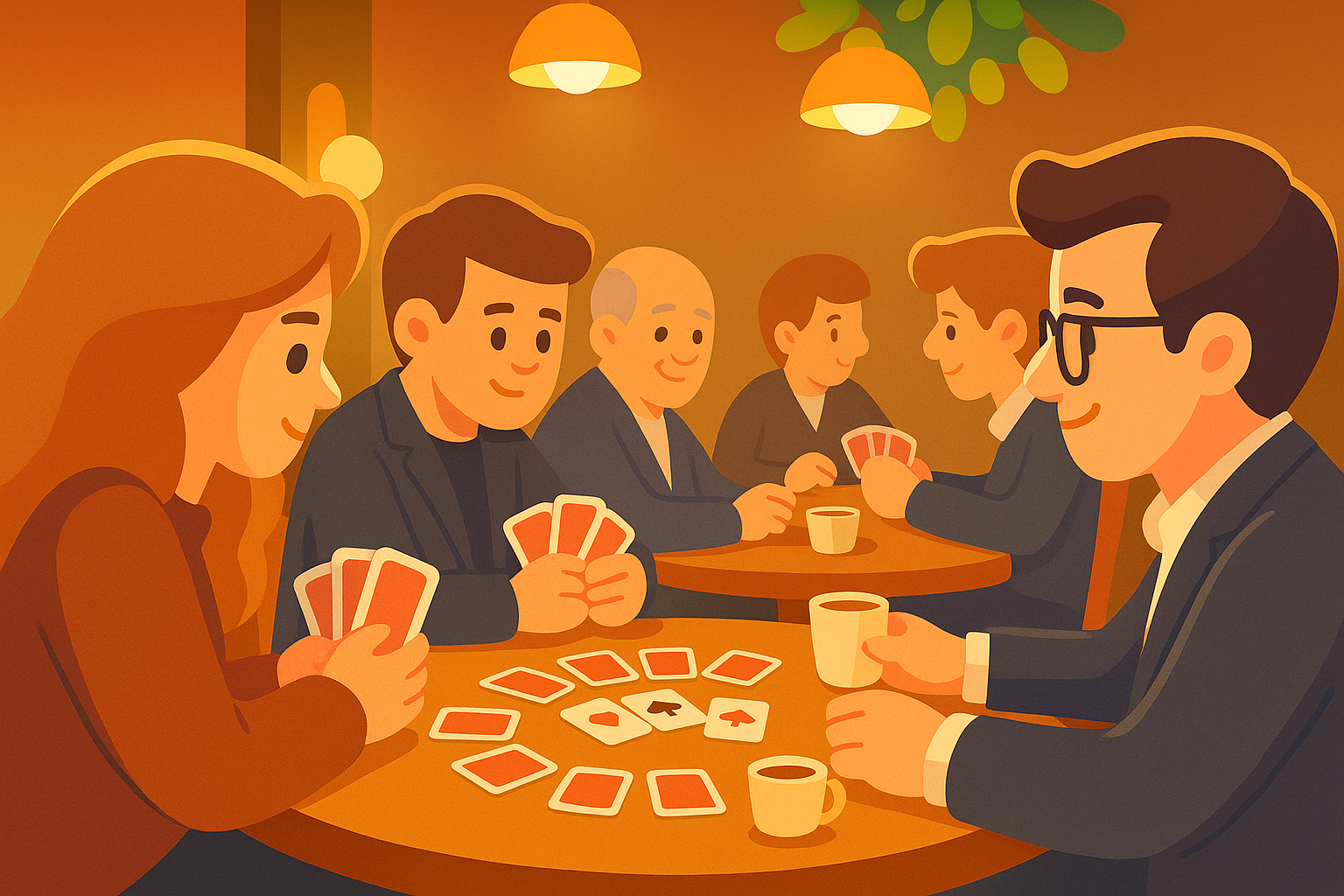The History of Belote: A Timeless French Card Game

By Nina Marshman, September 12, 2024
Belote is more than just a card game; it’s a cherished tradition in French culture. Played in homes, cafés, and even on digital platforms, Belote has captivated players with its strategy, camaraderie, and vibrant social dynamics. But where did it come from, and how did it evolve into the phenomenon it is today? Let’s delve into the fascinating history of this iconic game.
---
The Origins of Belote
**A Game Born in the Early 20th Century**
Belote, as we know it, originated in France in the early 20th century. Its invention is often attributed to Dutch-born Edmond de Belote, though this attribution remains a topic of debate among historians. The game draws influences from older trick-taking games, including Klaverjassen, a Dutch game that shares several mechanics with Belote.
Belote quickly gained popularity in France, thanks to its straightforward rules and engaging gameplay. By the 1930s, it had become a staple in French households, bridging generations through friendly competition.
**Influence of Traditional Card Games**
Belote wasn’t created in a vacuum. It borrows elements from various European card games such as Whist, Skat, and Euchre. These games share a common ancestry of trick-taking mechanics, where players aim to win rounds by playing the highest-ranking cards. Belote’s innovation was its unique bidding system and the introduction of “announcements,” which added layers of strategy to the game.
---
The Rise of Competitive Play
**From Homes to Tournaments**
As the game gained traction, organized tournaments began to emerge. The first formal Belote competitions took place in France during the mid-20th century. These events allowed players to showcase their strategic prowess and created a sense of community among enthusiasts.
**The Role of Local Cafés**
Cafés played a significant role in popularizing Belote. In many towns and villages, locals would gather to play for hours over cups of coffee or glasses of wine. The café culture surrounding Belote fostered friendships and rivalries, making it more than just a game—it became a social institution.
---
Variations and Regional Differences
**Classic vs. Contrée Belote**
Over time, variations of the game emerged. The most popular include **Classic Belote** and **Contrée Belote**. While the core mechanics remain the same, Contrée adds a layer of bidding complexity, allowing players to set their own stakes for the round. This variation is especially popular in competitive settings.
**International Adaptations**
Though primarily a French game, Belote has spread to neighboring countries like Belgium, Switzerland, and even parts of North Africa, where it’s enjoyed by expatriates and locals alike. Each region has its own twist on the rules, reflecting local customs and preferences.
---
Belote in the Digital Age
**The Shift to Online Platforms**
The advent of the internet revolutionized Belote. Online platforms and mobile apps now allow players to connect across the globe. These digital versions of the game often feature AI opponents, leaderboards, and customizable game settings, making Belote accessible to a new generation.
**Keeping Tradition Alive**
Despite its digital transformation, traditional Belote remains popular. Many players still prefer the tactile experience of shuffling cards and the lively banter of in-person games. This balance between old and new ensures that Belote’s rich heritage endures.
---
Why Belote Endures
**A Game for All Ages**
One of the reasons for Belote’s enduring appeal is its accessibility. The game is easy to learn yet challenging to master, making it suitable for players of all skill levels. Families introduce children to the game, while seasoned players hone their strategies in competitive settings.
**Cultural Significance**
Belote is more than just entertainment; it’s a reflection of French culture. Its emphasis on partnership and strategy mirrors the importance of collaboration and intellect in French society. For many, playing Belote is a cherished ritual that connects them to their heritage.
---
Conclusion: Belote’s Timeless Charm
Belote has come a long way from its humble beginnings, evolving into a beloved pastime that transcends generations and borders. Whether played in a bustling café, at a family gathering, or on a smartphone, Belote continues to bring people together. Its rich history and vibrant community ensure that it will remain a cornerstone of French culture for years to come.
So next time you pick up a deck of cards, why not try a game of Belote? You might just find yourself swept up in its timeless charm.
